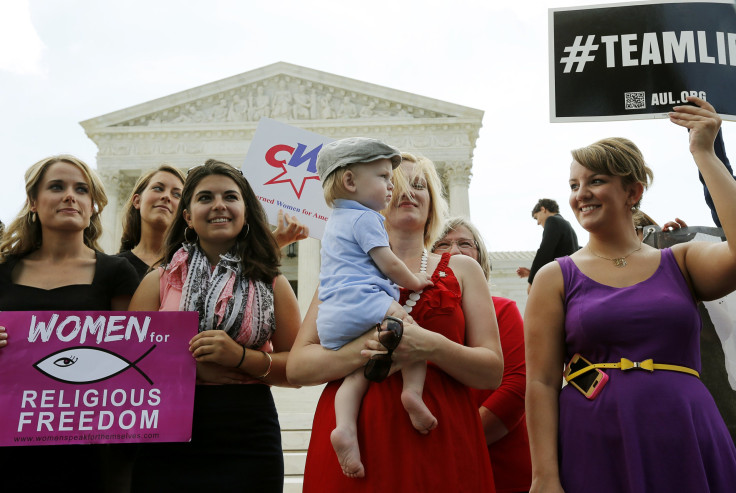US Supreme Court Rules 35-Foot Buffer Zones Outside Massachusetts Abortion Clinics Are Unconstitutional

The U.S. Supreme Court on Thursday struck down the use of a 35-foot buffer zone outside Massachusetts abortion clinics, which help people entering the facility avoid anti-abortion protesters, claiming that the law violates the right to free speech.
All nine judges of the court said that the 2007 law, which forbids anti-abortion activists from standing on the sidewalk to speak to those entering the clinic, is unconstitutional and unnecessary as it defies freedom of speech under the U.S. Constitution's First Amendment. According to reports, anti-abortion protesters challenged the law claiming that they wanted to speak to women entering the clinics about alternatives to abortion.
“Petitioners wish to converse with their fellow citizens about an important subject on the public streets and sidewalks — sites that have hosted discussions about the issues of the day throughout history,” Chief Justice John Roberts reportedly wrote for the court. He went on to add that though the state has an interest in the security of the public, it “pursued those interests by the extreme step of closing a substantial portion of a traditional public forum to all speakers.”
In an earlier statement, the National Organization for Women criticized the court’s “cavalier disregard for the physical safety — the lives, even — of women seeking abortion care and the health care providers who serve them.”
The court did not reportedly specify under what factors similar fixed buffer zones that have been adopted in several other cities, such as San Francisco and Pittsburgh, would be deemed lawful. According to reports, even after the unanimous ruling in Massachusetts, Colorado’s buffer zone, which prevents protesters from approaching within 8 feet of clinic visitors without their consent, will most likely remain unchanged.
“It’s certainly not a decision that is in any way going to end the legality of – or the debate about – abortion rights in the United States,” Durango lawyer and state House Rep. Michael McLachlan said, according to The Durango Herald.
“But it’s important to understand that this is a setback for women in Massachusetts. It isn’t a setback for women’s freedom, health or abortion rights in Colorado,” he reportedly said, pointing to differences in laws of the two U.S. states.
The Massachusetts buffer zone was enacted following security concerns of abortion providers, as 11 such health clinics had been reportedly attacked in the past. In 1994, two abortion clinic workers were killed in Brookline, Mass.
© Copyright IBTimes 2024. All rights reserved.




















